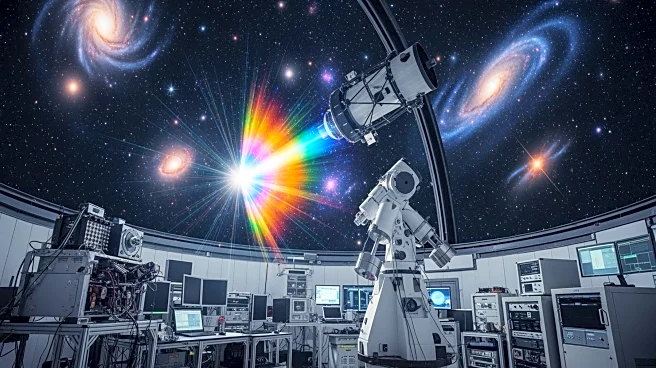What's Happening?
Scientists are advancing in their efforts to confirm the existence of dark matter by examining a diffuse gamma-ray glow near the center of the Milky Way. Dark matter is an invisible substance believed
to make up over a quarter of the universe, while ordinary matter, which includes stars and planets, accounts for only 5% of the cosmos. The challenge in detecting dark matter lies in its inability to absorb, reflect, or emit light, making direct observation difficult. Researchers rely on the gravitational effects of dark matter observed throughout the universe to support its existence.
Why It's Important?
The confirmation of dark matter would be a significant breakthrough in understanding the universe's composition and the forces that govern it. Dark matter's gravitational effects are crucial for explaining the structure and behavior of galaxies, including our own. If scientists can verify its existence, it could lead to new insights into cosmic phenomena and potentially revolutionize physics and cosmology. The study of gamma rays as a method to detect dark matter could open new avenues for research and technology development, impacting scientific fields and industries reliant on advanced physics.
What's Next?
Further research and observation are expected as scientists continue to analyze gamma-ray data to strengthen the case for dark matter. The scientific community may see increased collaboration and investment in technology to enhance detection methods. As studies progress, there could be discussions on the implications of dark matter confirmation for theoretical physics and potential applications in technology and space exploration.
Beyond the Headlines
The pursuit of dark matter detection raises ethical and philosophical questions about the nature of the universe and humanity's place within it. Understanding dark matter could challenge existing scientific paradigms and lead to a reevaluation of fundamental concepts in physics. The implications of such discoveries may extend beyond science, influencing cultural and philosophical perspectives on existence and reality.












